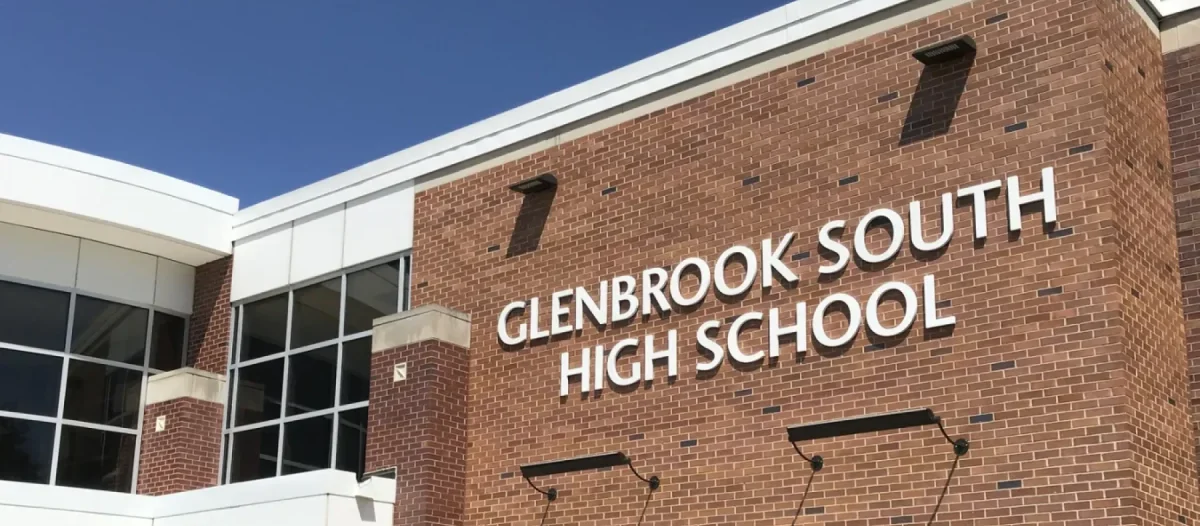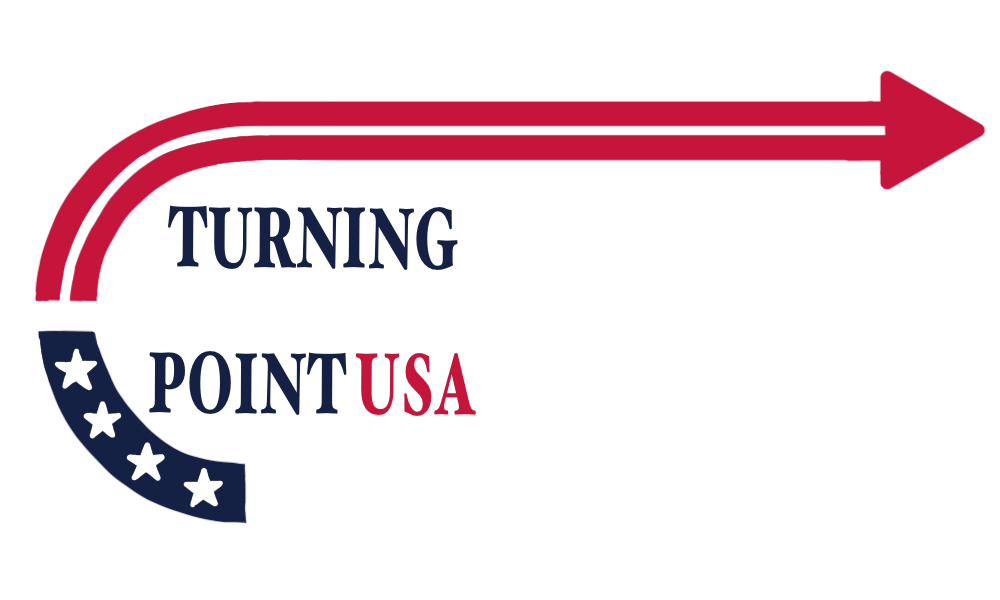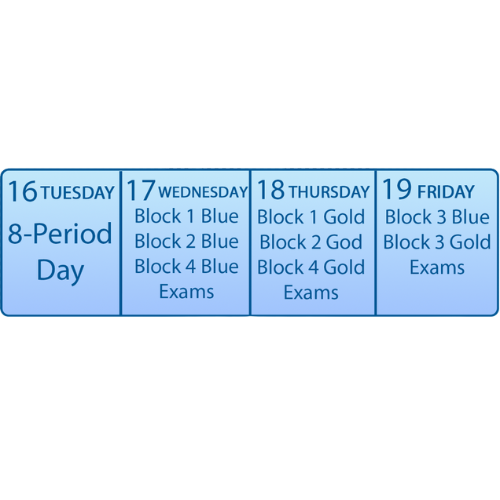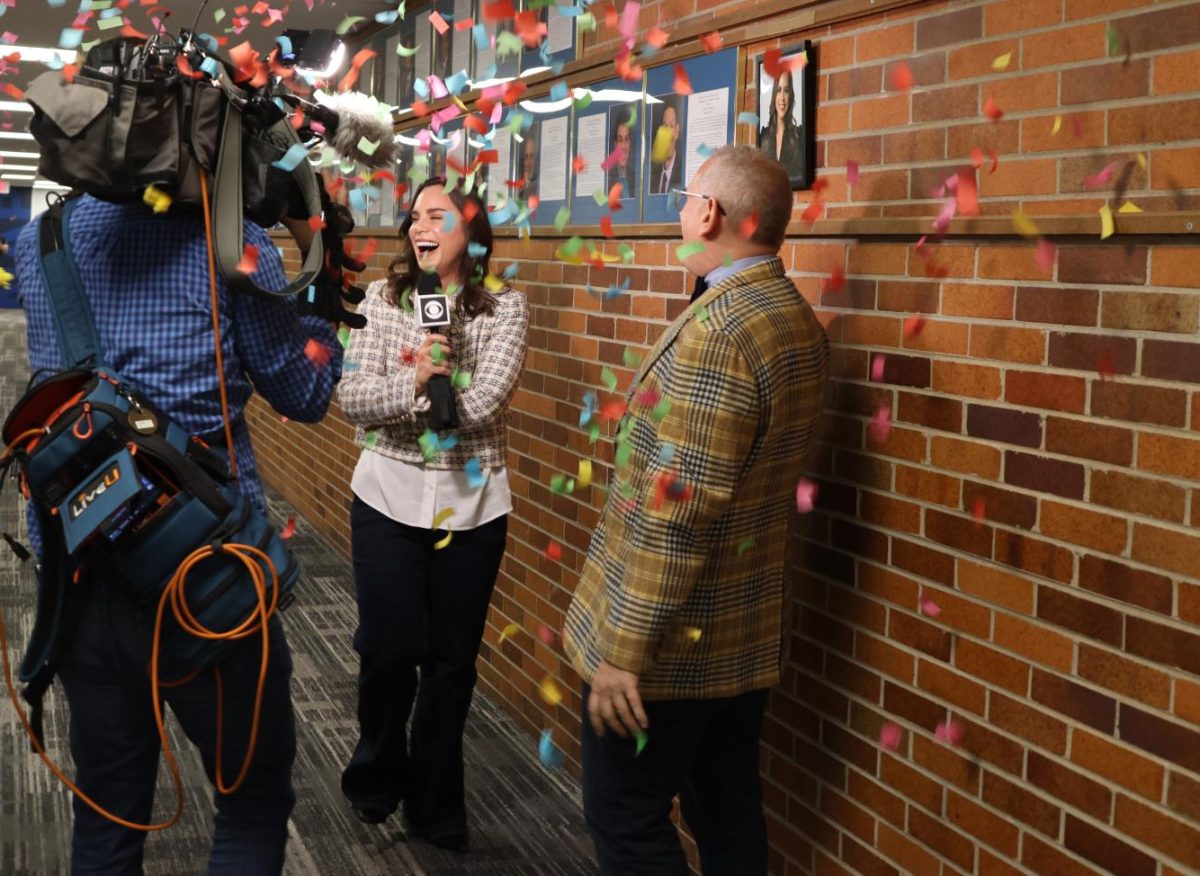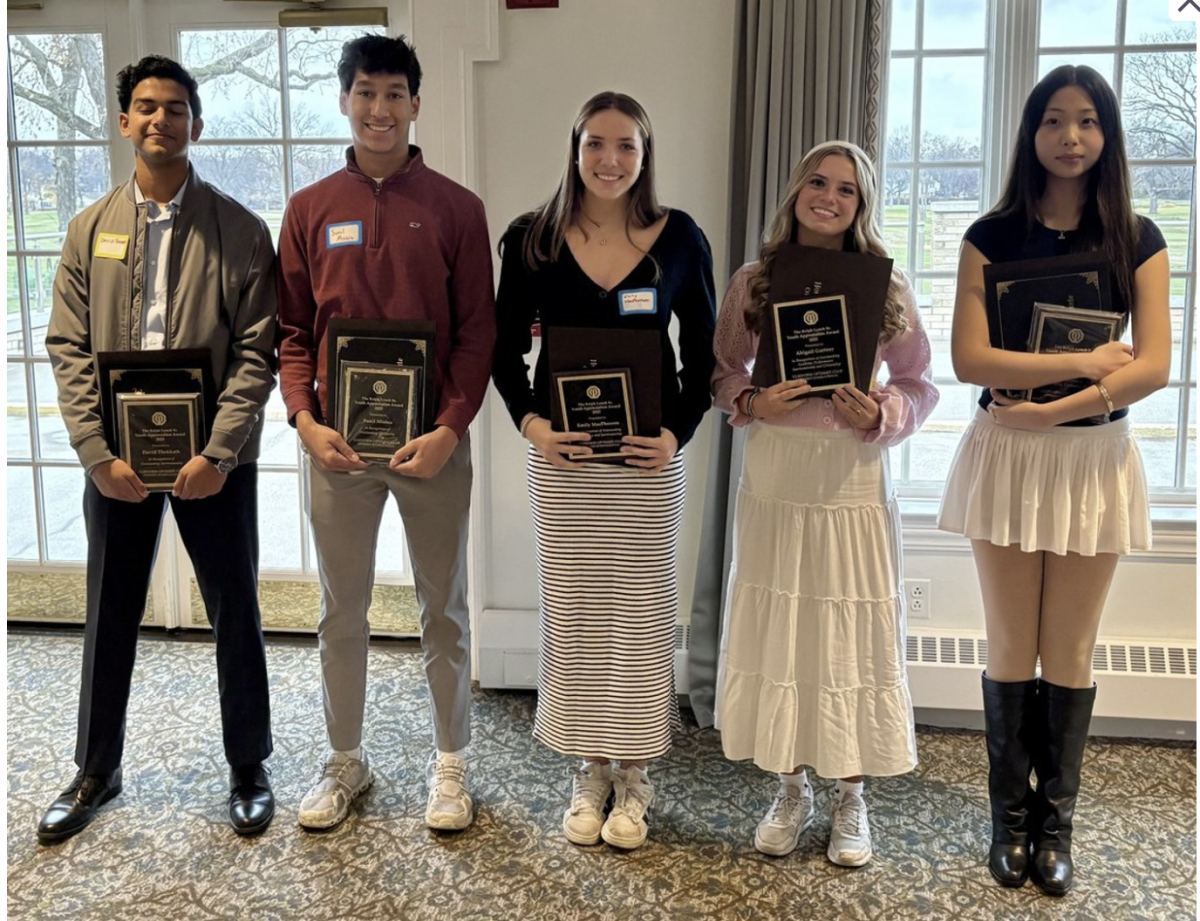South’s Political Science (Poly-Sci) students organized a debate between Daniel Biss, Democratic State Representative, and Republican candidate Glenn Farkas in the Norman E. Watson auditorium Wednesday, Sept. 19.
The Poly-Sci students, who are taught by David Kane, Social Studies teacher, wrote questions, organized additional questions that the audience submitted, publicized the debate and worked to make sure the night itself ran smoothly.
Kane explained that the purpose of the debate was twofold: his hope was to benefit both the Poly-Sci students as well as the audience by raising awareness regarding politics for both groups.
“The process made me more aware of politics,” senior Chandler Farrell, Poly-Sci student, said. “I feel like I really got to understand the different platforms.”
According to Kane, Tara Tate, GBS debate head coach, was asked to moderate the debate because of her intimate knowledge of debate formats as well as the issues to be covered.
“I thought the candidates did a great job answering the questions in a factual basis,” Tate said. “I thought it was very well balanced [between informing the students and delving into the political issues more deeply] and informative as well as [the candidates doing a good job of] selling their platforms.”
The Poly-Sci students collected questions from the audience and chose certain ones to be asked at the end of the debate in addition to the ones that the students had written themselves. The debate highlighted issues regarding state pensions, Medicare and Medicaid, and budget cuts. In addition to learning about politics, Kane hoped the process of putting together the debate would also educate the Poly-Sci students about the complexities of the political process.
Senior Conor Heneghan, a Poly-Sci student, said, “I found out how much goes into a debate. It’s not just two people talking; it takes a whole organization to run these debates.”
Two years ago, Kane’s class helped organize a debate between Bob Dold and Dan Seals, former candidates for U.S. Congress. That debate was held in conjunction with the League of Women Voters, but Kane wanted students to have a bigger role this year.
In an Oracle-conducted survey of the Poly-Sci students, many students said they learned a lot from their experience.
“The goal of the debate was to present both sides and views on the issues in the most respectful manner to a wide range of people,” senior Casey Chiappetta, Poly-Sci student, said. “The questions we wrote, paired with the questions the audience asked, definitely accomplished this goal.”
Another Poly-Sci student, senior Grace Pittner, agreed.
“I think the debate went very well,” Pittner said. “Watching the candidates and listening to them speak triggered [a lot] of questions in me and made me intrigued about what they had to say.”
Kane’s class also aimed to inform the audience. In an Oracle-conducted survey of 52 debate attendees, nearly 70 percent felt they had little to no knowledge regarding the candidates before the debate. However, 40 percent of those surveyed felt they learned at least a little about the candidates from the debate.
The debate even transformed some attendees’ opinions; 28 of 49 people surveyed said that the debate “swayed their opinion of the candidates” in some way. Of the 28 people swayed, 22 decided to support Biss.
“We think Biss explained things in a better way,” junior students Georgia Gountanis and Daniela Vargus wrote on a survey they filled out. “He made it easier for [students] to understand what they were talking about.”
Five of the 28 decided to support Farkas.
“I don’t know if Mr. Biss is any better educated than Mr. Farkas,” community member Jeff Tousek said. “Although Mr. Biss is not far off-track on a lot of things, whether or not he does anything about that is a different story. Based on the debate tonight, I’m voting for Farkas.”
The candidates believed that the student involvement was impressive and said that there is a need for students to become educated about politics even before reaching voting age.
“I think [the students] did a great job,” Farkas said. “They set [the debate] up [well]; the coordination was phenomenal. I’m also impressed with the overall interest in politics the students have. I remember when I was a high school student. I didn’t know a thing about politics, so I think for all the students here to do something like this….is a great experience… and I think it’s very important.”
Biss agreed with his opponent about the value of the debate.
“I chose to come to this school because when a group of students want to put on a debate, they can name the time, they can name the place, and I’ll be there,”Biss said.


